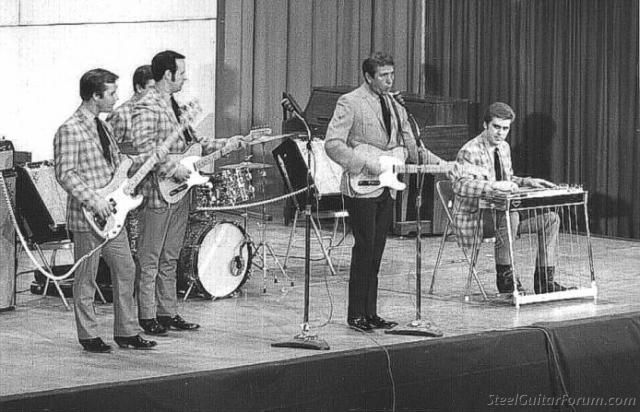
Defiant Simplicity in the Face of Heartbreak: A Love Song That Refuses to Beg
When Buck Owens released “I Don’t Care (Just as Long as You Love Me)” in 1964, it surged to the top of the Billboard Hot Country Singles chart and stayed there for six consecutive weeks—a testament not just to its infectious rhythm, but to the raw emotional clarity it offered listeners at a time when country music was in the throes of transformation. The track appeared on Owens’ album of the same name, I Don’t Care, which further cemented his place at the helm of the Bakersfield Sound—a twangier, electric guitar-driven alternative to Nashville’s smoother productions. This was not merely a hit; it was an anthem for a new kind of romantic resilience.
At its heart, “I Don’t Care” is deceptively simple. Built around a brisk tempo and Owens’ signature Telecaster twang, the song unfolds with an almost casual defiance. “They say you’re seeing someone new,” he sings, “but I don’t care just as long as you love me.” It’s a lyric that walks the razor’s edge between denial and devotion, pride and desperation. Owens’ voice doesn’t crack with pain nor swell with rage—it remains matter-of-fact, even buoyant, as if he has made peace with being loved imperfectly. That emotional ambiguity is what gives the song its enduring power.
While many contemporaries wallowed in heartbreak or begged for fidelity, Owens carved out something different: a stoic acceptance that love, however compromised, is still worth holding onto. This wasn’t weakness—it was a declaration of priorities in an imperfect world. In doing so, Owens captured a universal truth: sometimes we cling not to ideal love, but to whatever remains of it.
The musical structure mirrors this ethos. From the opening bars, the arrangement is bright and upbeat—almost incongruously so. Don Rich’s harmonies glide like sunlight over troubled water, masking emotional turmoil beneath polished veneer. The pedal steel sighs gently in the background, hinting at heartache without indulging in melodrama. This contrast between lyrical content and musical mood is no accident; it reflects Owens’ mastery of emotional duality—the ability to smile through tears without ever descending into sentimentality.
More than half a century later, “I Don’t Care” endures not because it pretends love is easy or pure, but because it accepts its complexities with grace and clarity. In three minutes flat, Buck Owens redefined how country music could speak about loyalty—not as blind devotion or masochism, but as a quiet strength. It stands today not only as one of his finest achievements but as a cornerstone of American songwriting: honest, unadorned, and profoundly human.